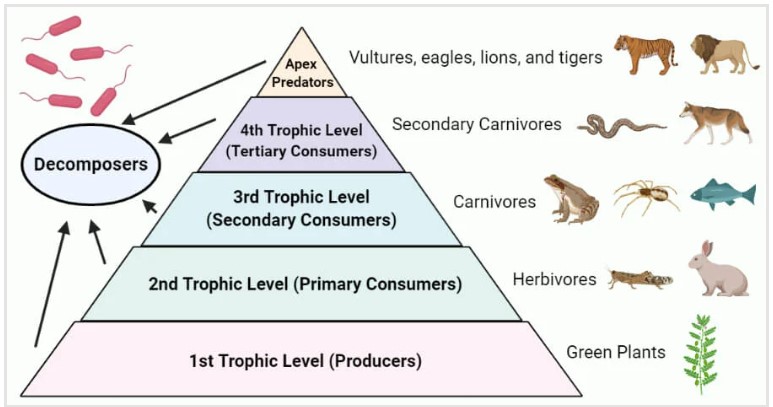In Amazing Spider-Man #30, Doctor Octopus makes a claim to Spider-Man that needs some clarification.
While wrapped up in a battle with Spidey, Ock says, “Don’t be ashamed of your fate Spider-Man. You’ve been harvested by an apex predator.”
Okay – just so we’re clear here, the evil Doctor was talking about himself and his whole “superior” schtick, not octopuses in general. Oh, and yes, “octopuses” is correct, and feel free to correct your teacher here. “Octopi” would be valid if “octopus” came from a Latin root, but it comes from the Greek, meaning “eight foot.” Greek root term, Greek root pluralization: octopuses.
For context, Doc Ock is currently sporting arms made of “Ocktoids” — each an individual, AI-driven entity joining to form his arms. In this fight, Spider-Man is wearing Doc Ock’s original set of arms, which have developed a consciousness and affinity for both Spider-Man and J. Jonah Jameson.
I had no idea how nuts that was until I typed it out.
So – apex claims are related to Ock’s ego, not biological antecedent; the question remains —
What is an Apex Predator?
Apex predators are at the top of the food chain. They hunt other things. Nothing hunts them, and they control the biome.
Perhaps the easiest way to think of it is as a pyramid:

Producers (plants) on the bottom, apex at the top. (image from Microbe Notes)
No one eats the lion. The lion benefits from the energy gained from all the levels below “lion.”
Each biome has its apex predator, and along with lions, they’re quick to come to mind: killer whales, great white sharks, saltwater crocodiles, polar bears, bald eagles, jaguars, tigers, and wolves. There can be some crossover of biomes and geographic regions, but generally, a single biome supports one type of apex predator.
If you think of it in terms of energy, each successive level concentrates a portion of the energy below it. Plants (producers) gather the sun’s energy and hold it in cellulose, starches, and sugars. Roughly 10% of this energy passes to the next level, the primary consumers (herbivores). 10% of the energy of the herbivores goes to the secondary consumers, for example, spiders eating a plant-eating insect or an octopus eating a plant-eating fish. Apex predators sit at the top of the pile and are almost exclusively carnivores — although there are herbivore apex predators and omnivores.
If you consider the relationship of organisms as a pyramid, it’s easy to understand – an apex predator needs a large base. But that position comes with a cost — being the king isn’t easy. The situation is fragile. There aren’t many apex predators, globally speaking, and their removal has profound impacts on the layers below.
So What About Octopuses?
Approximately 300 species of octopus exist worldwide. They’re found in every ocean but stay clear of polar regions. But – octopuses are residents of (nearly) all, masters of none. Yes, they’re wickedly intelligent and clever — and have defensive capabilities, but that doesn’t make them apex predators.
Octopuses are on the menu for many animals higher up on the food chain – sharks, dolphins, saltwater crocodiles, birds, whales, large fish, eels, and even other octopuses. The size of the octopus doesn’t matter, either — the Giant Pacific Octopus, which can be up to 16 feet long, is the typical dinner for seals, sharks, and large fish. Think of any nature special you’ve seen on octopuses — none of them are about the ferocity of how they fight, but rather about their puzzle-solving abilities, sneak attacks, and camouflage. Apex predators don’t hide.
Also – think of numbers. In any given habitat, you can find a lot of octopuses. There are reports that the number of octopuses is increasing worldwide. A characteristic of apex predators is that few are in a given habitat. They need/use a lot of energy, so apex predators need a large, diverse biome for support.
Octopuses — not apex predators. Doctor Octopus — likes to consider himself an apex predator among supervillains.
What About Spiders, Then?
Of course, since Doc Ock is fighting Spider-Man, the question hangs there: is a spider an apex predator, then?
Nope. Not even close.
Again, think of the place of spiders in the food chain or web. Spiders are arachnids, which are a class of arthropods. Insects. Insects (thankfully) are not at the top of any food chain. Despite their webs, traps, and extraordinary senses, spiders are often on the menu for many different animals: birds, lizards, fish, toads and frogs, small mammals, and other spiders.
As with octopuses, think of numbers: in any given biome, there are a lot of spiders.
Spiders — also not apex predators. All told, this was a mid-food chain-level fight.
And I am shocked that there is no “giant octopus vs. giant spider” movie. What does The Asylum even do anymore?
But What About Humans?
When discussing apex predators, the question arises: are humans the “ultimate” apex predators?
Yeah, sorry, Kraven. That’s not an easy question to answer. It’s most likely yes, but there are conditions.
Generally, the debate comes down to two sides: humans change the environment and use tools, which makes applying the same conditions we do to other apex predators difficult. We use guns to hunt and kill apex predators of different food chains. Taking down a lion with your bare hands may be a dream, but hardly likely without tools.
But then, the argument runs — wolves use their brains to hunt. What is using a tool to hunt other than using our brains to hunt?
Our modern diet blurs the line as well.
Since the time of our mammoth-hunting ancestors, we’ve moved away from diets centered on meat to include more plants. We’ve redesigned vast regions of our planet to grow the plants that feed us. We’re omnivores. There are omnivore apex predators (brown bears and honey badgers, for example) — but we eat more plants (as a species) than most other omnivore apex predators. We’re also sloppy. Apex predators consume virtually all of their prey. We have leather pants. If you want a little more trophic-level-based humiliation, a study puts humans on the same level as anchovies and pigs.
But that wasn’t always the case. Recent research shows that humans were almost exclusively carnivores before agriculture hit big (about 12,000 years ago). Though we often try to marry current hunter-gatherers with how humans behaved in the past, the researchers point out that’s not the case. Before the introduction of agriculture, foraged nuts, berries, and other wild fruits and vegetables supplemented the diet. It was not the diet. There was a lot of meat.
The finding puts our ancestors clearly in the apex predator camp. Yes, there would have been overlaps of territory, and Tar-nog went after a sabertooth and never came back, but we don’t judge the entire human species on Tar-nog’s miscalculation. Tar-nog’s friends may have realized their pal’s mistake and used their brains to hunt better next time.
Humans as apex predators? It comes down to some finicky definitions and conditions. Are we apex predators now? According to some scientists, yes; according to others, no. Were we before agriculture? That gets a more solid yes vote.
So – maybe, Kraven?
But as for Doc Ock’s claim? Yeah, that was bragging on himself and flexing some ego. He’s been doing that for a long, long time…











